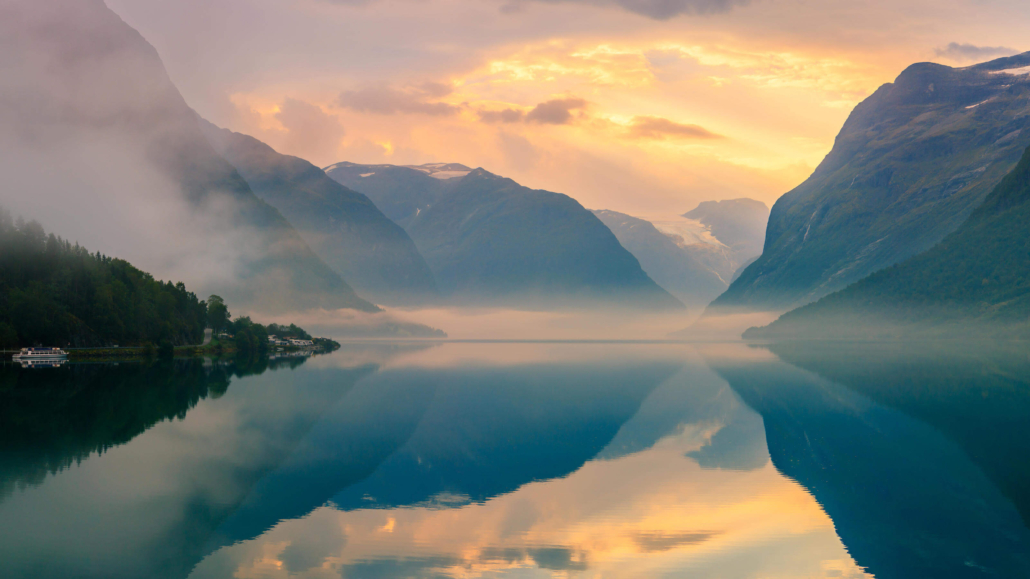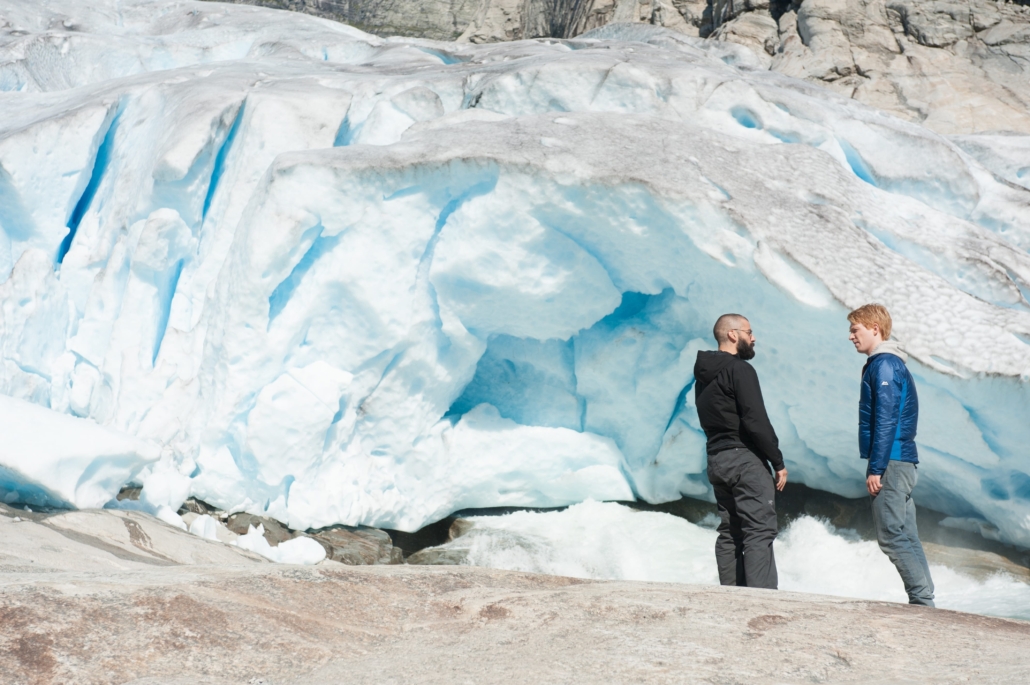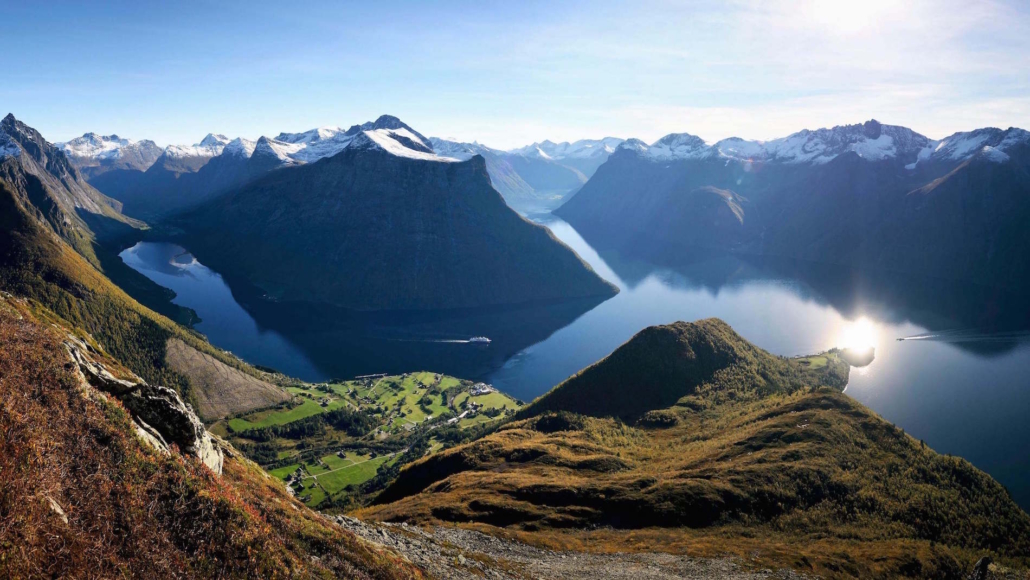EUFCN Spotlight on: Western Norway Film Commission
Established in 2003, Western Norway Film Commission helps filmmakers looking to shoot in the unique fjord landscape of Norway, an attractive production destination in recent years.
Film Commissioner Sigmund Elias Holm guides us through the opportunities of filming in a region that can become, on the screen, different arctic areas in the world, the moon, or even imaginary planets.

Which productions were shot recently in Western Norway and which ones are set to be shooting in the future?
“We are really pleased to see Mission: Impossible returning to Western Norway, following the success of the climactic action sequence in Mission: Impossible – Fallout. We also have a couple of drama series shooting now, a Netflix Original, as well as a really exciting Norwegian-German co-production.
Norway was one of the first countries to restart production in late April but, like elsewhere in Europe, many local productions have had to postpone their schedules, some until 2021.
We are optimistic going forward. In addition to the increasing number of major international shoots, local production is also trending up. The Tunnel, a feature film from the region, became something of a mid-pandemic box office success. With the lack of Hollywood fare, it got a good run in theatres in Southeast Asia. We also have some very exciting titles entering production in the coming year – from a €10 million WW2 drama, to a viking survival series and some very hot genre projects.”
What’s the biggest production you have ever supported in Western Norway?
“We have had a fair share of major productions coming to Western Norway in recent years, such as the aforementioned Mission: Impossible, Denis Villeneuve’s Dune, Black Widow – which marks Western Norway’s first entry into the Marvel Cinematic Universe, and No Time to Die.
If I’m to single out one project, I would go for Alex Garland’s Ex Machina (2015) which shot in the Valldal valley and at the Nigard glacier. It’s not the biggest in terms of budget, but it has had a lasting impact.
Ex Machina became something of a cult success and a film tourism phenomenon. It was heralded for its fresh look, and rejuvenated the interest in Norway as a location. The film received a lot of buzz in the Awards Season in 2016, at the same time as Norway launched its film incentive. Journalists, industry executives – everyone was asking themselves: Where is this shot?”

©Universal Pictures
What do you think is something unique your film commission can offer?
“Norway offers world-class production services and talents, but – it may sound like a cliché – the locations in Western Norway are something truly unique. With 3000 mountain peaks intersected by countless fjords, you can go from rough summits, icefields and barren landscapes, to lush valleys and charming towns in less than an hour’s drive.
The scenery is typical to Norway, but it’s also very versatile. We have doubled for Russia, Alaska, Himalaya, the Alps and fictitious planets like the icy Hoth in the Star Wars universe and the lush green Caladan for the upcoming Dune adaptation. Some of our glaciers are easily accessible also in the summer season, so we can double for the polar regions even in high summer. I went alpine skiing there this summer – the conditions were perfect!”
Do you have any particular anecdote related to your experience as film commissioner?
“I will always remember the first recce I went on. The director was too cool for school, wearing sunglasses, and in a mute mode. The weather was quite moody as well, so I wasn’t convinced that this was going anywhere. On day 3 we came out on this farm from the 1700s, overlooking fjords and waterfalls. The sun broke through the clouds, and the director exclaimed: ‘Mr Sigmund, this is just so beautiful, give me a hug!’
That’s part of the charm of this job: You get to experience your own region with new eyes, and you get to hang out with a good variety of personalities.”

What activities has Western Norway Film Commission been carrying on during these challenging months and how are you handling the restart of production in your country?
“The restart has been handled really well. The Producers Association and Film Workers Union early on established guidelines for domestic production. In terms of incoming production, the Ministry of Culture announced in July that productions qualifying under the 25% cash rebate can seek quarantine exemptions, as long as rigorous testing regimes and other safety measures are in place. For local production, the big question that remains unanswered is production insurance.
It has not been business as usual, but location scouting has been ongoing through the lockdown. Other than that, I’ve focused on assisting with policy development, and I’ve also been able to do a lot of things that are easy to neglect in busier times. We are launching a new website quite soon, and it will hopefully set sail in a few weeks time.”
The European Film Commissions Network is a non-profit association that supports and promotes the European film industry and culture. It currently represents 98 European film commissions and film institutions from 31 different countries.


